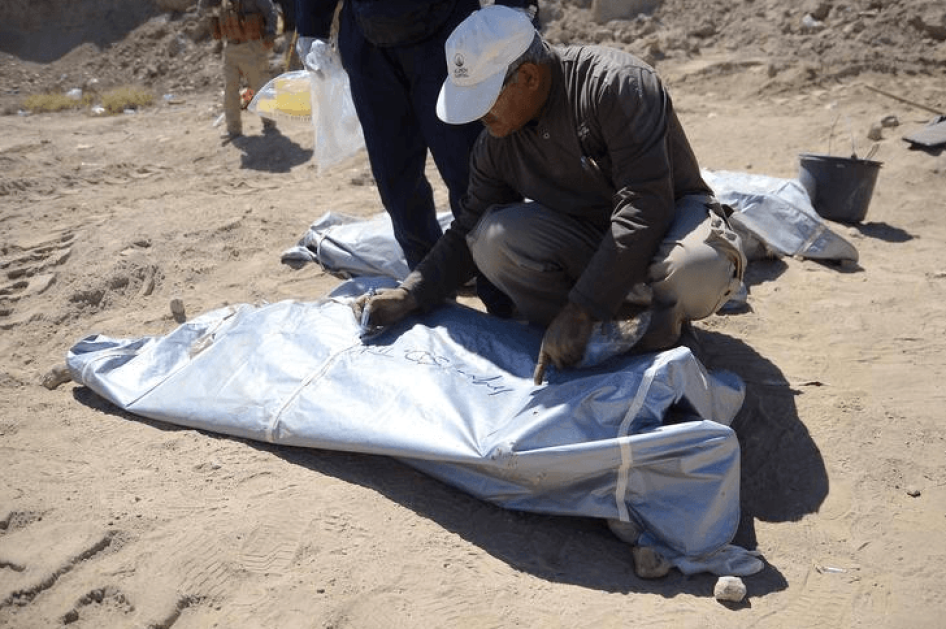Security forces in Iraq may be making gains against the Islamic State, also known as ISIS, but Iraq’s execution on Sunday of 36 men after flawed trials seriously undermined the battle for justice. The men were found guilty of participating in the massacre of hundreds of army recruits, when ISIS captured Tikrit.
Fair trials are an important for everyone – they show that ISIS’s killers will be held to account, and they are salve for the wounds of ISIS’s victims. But when such a high-profile trial as this is mired with due process violations, what faith can anyone, on any side, have in Iraq’s justice system?
The mass killings took place on June 12, 2014, when ISIS forces systematically executed at least between 560 and 770 Shia army recruits stationed at Camp Speicher. ISIS claimed they had killed 1,700 men. ISIS forces also executed dozens of local residents accused of being spies for the Iraqi government in Tikrit city, al-Dur, and al-Alam.
In July 2015, in a group trial that lasted all of two hours, a court convicted 24 men for allegedly participating in the massacre, based mainly on confessions that defendants claimed resulted from torture. They were sentenced to death. A higher court overturned the verdict because of procedural errors. In February 2016, the lower court convicted 40 men, including the original 24, in one group hearing that lasted a day. A second appeal was denied.
Defense lawyers appointed by the suspects’ families could not meet with or speak to the defendants before the hearing, so walked out, the families said. Subsequent state-appointed lawyers did not speak to their clients, according to the families. United Nations Assistance Mission for Iraq (UNAMI) issued a report this April stating UNAMI monitors at the hearing found the trial “fell short of international fair trial standards, including in the lack of an effective defence for the accused and failure to investigate allegations of torture.”
Last week, on August 17, Iraq’s President Fuad Masum approved the executions.
Such a flawed process will do little to show that Iraq is ensuring justice for ISIS crimes. Rather, Iraqi authorities, and the governments supporting them, should hold ISIS abusers to account – but in impartial and transparent trials without due process violations.









